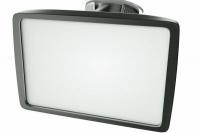How do I write a book about my life?
Writing a book about your own life - an autobiography - is a great challenge and requires some preparation if you don't want to get bogged down.
Describing your own life - useful preparations
To “shrink” your own life to the size of a book is a daunting task. In contrast to the diary, in which experiences are noted close to current events, an autobiography looks back at major periods of life. How can you proceed to consider everything and sort it sensibly? Here are a few pointers.
- First, divide your life into decades and sort out all the events that you remember that are important to you.
- Now draw a coordinate system for each decade. The years are on the horizontal line, and on the vertical line there is a division from +5 to -5.
- Depending on whether you experienced the respective stages of your life negatively or positively, enter them on the scale accordingly. This will give you points of tension that are important for writing your autobiography, as they help determine the dramaturgy.
- When you've completed the first version of your timeline, see if there are any topics that run like a red line through all or part of the events. From this you could derive a content-related division into chapters. Writing an autobiography that is “only” based on the chronological order may sharpen your own memory, but it may be rather monotonous for the reader.
How do I write a biography?
You have an exciting life and want to experience the special moments, ups and downs ...
Writing a book also requires an outside perspective
While you have used the methods described above for initial sighting and internal and external sorting, numerous details have surely occurred to you. What else is part of the To write Of your book?
- The further back you go in your history, the more blurred your memory is likely to be. Now at the latest it will be necessary to use the knowledge of other people for your material collection. Think about who besides your family members might know interesting details.
- Ask people who have accompanied you on your way how they experienced the events you selected. Everyone has a different point of view and engaging with them can make your story even more interesting and round it off.
- First, work out the central content of each chapter, just a few sentences are enough to start with. Use this phase to experiment with language. Get feedback from friends at this point to see how your style is being received and use their impulses.
- Also, read other people's autobiographies to find out what appeals to you and how to present your story in ways that suit you.



